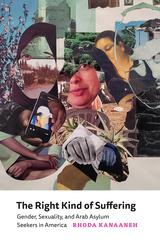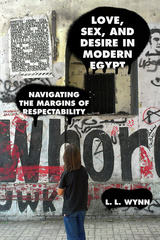As the coronavirus ravages the globe, its aftermaths have brought gender inequalities to the forefront of many conversations. Countries in the Middle East and North Africa have been slow to prepare for, adapt to, and mitigate the COVID-19 health crisis and its impacts on governance, economics, security, and rights. Women’s physical well-being, social safety nets, and economic participation have been disproportionately affected, and with widespread shutdowns and capricious social welfare programs, women are exiting the workplace and the classroom, carrying the caregiving burden.
With feminist foregrounding, Rita Stephan's collection COVID and Gender in the Middle East gathers an impressive group of local scholars, activists, and policy experts. The book examines a range of national and localized responses to gender-specific issues around COVID’s health impact and the economic fallout and resulting social vulnerabilities, including the magnified marginalization of Syrian refugees; the inequitable treatment of migrant workers in Bahrain; and the inadequate implementation of gender-based violence legislation in Morocco. An essential global resource, this book is the first to provide empirical evidence of COVID’s gendered effects.
For a fresh take on the pandemic’s impact on gender relations in the MENA region, this book is a must-read. Scholars of public health, gender, and/or the MENA region will find much of the research gathered in this volume rich and valuable.
COVID and Gender in the Middle East is a genuinely important contribution to a critical topic which has not received the attention it merits. It should force us all to think through the pandemic not only as a political and economic event, or as a public health challenge, but as a highly gendered social, political, and economic intervention. Their gendered lens lets us see more clearly holes in state capacity, with weak medical sectors and decrepit public health institutions so clearly observable in women’s access to health care. The gendered lens pushes us to understand effects across levels of analysis, to look inside the household as much as we look at formal political institutions or civil society. This collection should provoke a lot of thought and open up many avenues for future research.
This impressive and beautifully crafted volume breaks new ground in considering women’s agency in the Middle East and North Africa. Bringing together original research by international scholars and activists, the book captures the experiences of women in the region and shows their vulnerabilities and responses from a feminist perspective. A unique contribution on gender and the pandemic, Gender and COVID in the Middle East offers a wake-up call and a rich analysis of how COVID’s effects and solutions are gendered.
As COVID-19 spread to countries in the Middle East and North Africa, international policies focused on mitigating economic and social afflictions. Rita Stephan found a dire lack of recognition of local women’s varied experiences with the pandemic; in response, COVID and Gender in the Middle East raises awareness of women’s agency. The authors collected here are pioneers, diverse Arab women speaking not in the voices of victims but of caregivers, medical professionals, educators, students, family providers, and feminist civil society leaders. This is a powerful collection of empirical analyses, linking the pandemic to gender-based violence, social policy, and women activists' responses. . . . A must read!
COVID-19 has dramatically affected politics, economics, and societies across the world. This fascinating collection of essays demands that we understand its gendered effects, shining a light on the myriad ways in which women have been disproportionately affected by new demands for care, new stressors in home environments, and uneven exposure to risk in the workforce. Rita Stephan has gathered an impressive group of (mostly) women from the MENA region, whose experience and original research convincingly demonstrates the centrality of gender to understanding how COVID-19 is reshaping the region.
Rita Stephan is a research fellow at North Carolina State University and the Regional Coordinator for Religious and Ethnic Minorities at USAID. She is the coeditor of Women Rising: In and Beyond the Arab Spring and "In Line with the Divine": The Struggle for Gender Equality in Lebanon.
- Foreword. The Response to COVID—and to Everything—Is Female (Lina AbiRafeh)
- Acknowledgments
- Abbreviations
- Introduction. Why Is COVID Female? (Rita Stephan)
- Part I. Care and Care Work Spheres
- Chapter 1. COVID-19, Women, and Healthcare (Valentine M. Moghadam)
- Chapter 2. COVID-19: A Threat to Lebanese Women’s Precarious Condition (Jennifer Skulte-Ouaiss and Jana G. Mourad)
- Chapter 3. The Impact of COVID-19 on Women’s Prosperity in the Gulf Countries: Survey Evidence from Bahrain (Omar Al-Ubaydli, Deema Almoayyed, and Ghada Abdulla)
- Chapter 4. When Inequalities Interconnect: Women Scholars’ Productivity amid the COVID-19 Pandemic in the Middle East and North Africa (Nermin Allam, Gail J. Buttorff, and Marwa Shalaby)
- Part II. Social Vulnerabilities
- Chapter 5. The LGBTIQ+ Community’s COVID Dilemma in Lebanon and Beyond (Lina Abou-Habib and Amina Ali)
- Chapter 6. The Gendered Impact of the Pandemic on Syrian Refugee Women in Jordan (Oroub El-Abed and Nuseibah Shabaitah)
- Chapter 7. Violence against Women during and after Lockdown (Rhizlaine Benachir and Sofia Raïs)
- Chapter 8. Gender Dynamics and Distance Education: Toward a Situational-Interactionist Model of the COVID-19 Contingency Effect on Female University Students in Morocco (Ilham Sadoqi)
- Part III. A Gender Lens on COVID Impact in the Middle East and North Africa
- Chapter 9. COVID’s Three-Order Impacts on Women’s Health: A Typology (Rita Stephan)
- Chapter 10. Women’s Rights and Roles during the COVID-19 Pandemic (Salma Al-Shami, Michael Robbins, and Zach Bampton)
- Chapter 11. Unmasking Masculinity during COVID in the Middle East and North Africa (Merissa Khurma, Youssef Chouhoud, and Rita Stephan)
- Part IV. Feminist Responses
- Chapter 12. COVID-19 and Feminism in the Middle East: Challenges, Initiatives, and Dilemmas (Nadje Al-Ali)
- Chapter 13. The Power of Bipartisan Mobilization: The Success of Tunisia’s Feminist Movement during the Coronavirus Pandemic (Maro Youssef and Sarah Yerkes)
- Chapter 14. Harmony of Feminine and Masculine Leadership during the COVID-19 Pandemic in Jordan (Mayyada Abu Jaber)
- Chapter 15. The Feminist Position: Corona Crisis Management and Its Impact on Palestinian Women (Reham Abu Al-Asal, Nabila Espenoli, Samah Salaima, Nahda Shehadeh, Shahira Shalabi, and Hana Amouri)
- Contributors
- Index









